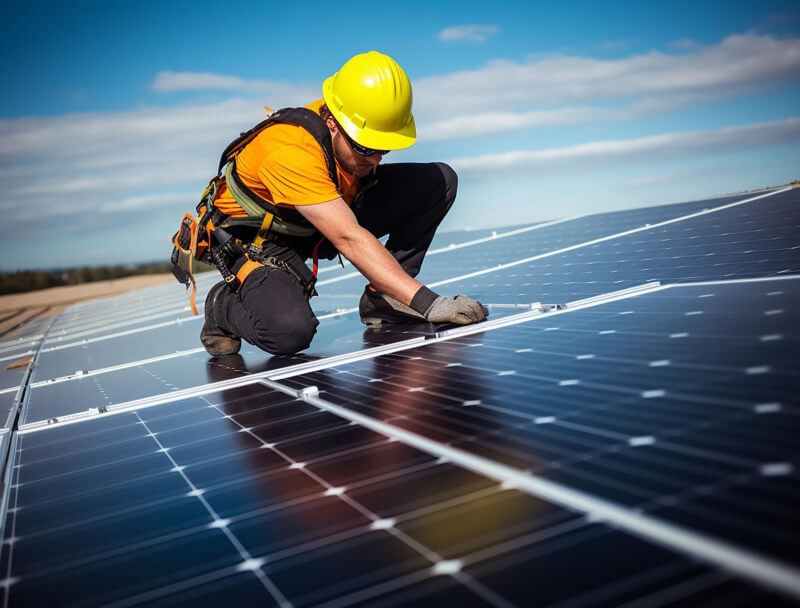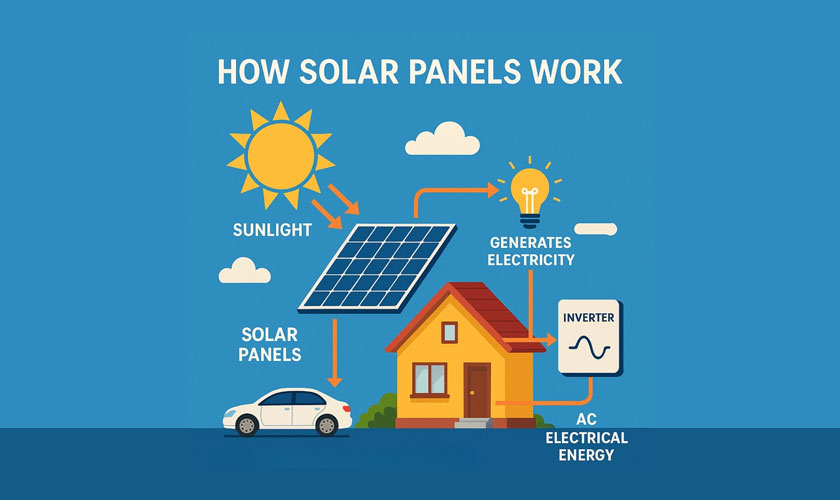How Solar Panels Work: A Simple Guide for Beginners
With rising electricity bills and growing environmental concerns, solar energy has become one of the most popular renewable energy options. But how do solar panels actually work? This beginner’s guide breaks down the process in a simple, easy-to-understand way.
What Is Solar Energy?
Solar energy is the light and heat that comes from the sun. Every hour, the sun provides more energy to Earth than the entire world uses in a year. Solar panels capture this sunlight and turn it into usable electricity.
What Are Solar Panels Made Of?
Solar panels are made up of many small units called solar cells (usually made of silicon). These cells are the building blocks that convert sunlight into electricity using a process called the photovoltaic effect.
Each solar panel typically contains 60 to 72 solar cells arranged in a grid pattern, protected by a glass casing and framed in aluminium.
How Do Solar Panels Generate Electricity?
Here’s a simplified step-by-step process:
Step 1: Sunlight Hits the Panels
When sunlight strikes the solar cells, the energy knocks electrons loose inside the silicon.
Step 2: Creating Electric Current
This movement of electrons creates direct current (DC) electricity.
Step 3: Inverter Converts DC to AC
Since most homes and appliances use alternating current (AC) electricity, the DC power from the panels flows into an inverter. This device converts DC to AC.
Step 4: Power Your Home
The AC electricity is now ready to be used in your home for lights, appliances, and devices.
What Happens to Extra Power?
Battery Storage
Extra energy is stored in a battery to use at night or during power cuts.
Net Metering
Extra electricity can be sent back to the grid. In some regions, you get credit on your electricity bill for the power you supply.
Why Go Solar?
Lower Energy Bills
Once installed, your solar system reduces or eliminates your monthly electricity costs.
Eco-Friendly
Extra electricity can be sent back to the grid. In some regions, you get credit on your electricity bill for the power you supply.
Low Maintenance
Solar panels last 25–30 years with minimal upkeep.
Final Thoughts
Solar panels are a smart investment for both your wallet and the planet. Whether you're curious or ready to install, understanding how they work is the first step toward a more sustainable future.

